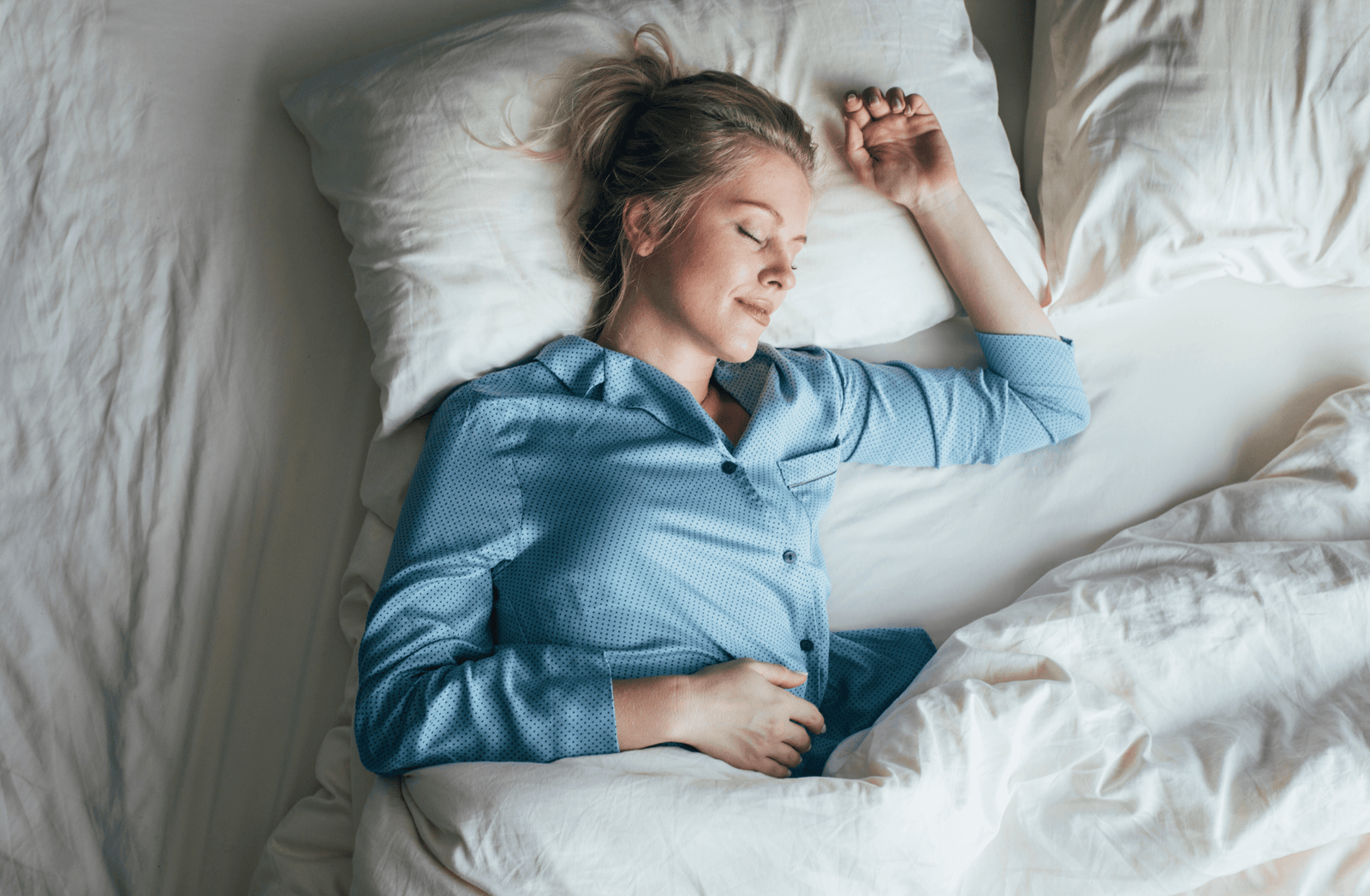Unlock the Secrets to Better Sleep: Practical Tips and Natural Remedies

In today’s fast-paced world, getting a good night’s sleep is often easier said than done. Many of us struggle with sleep issues, from difficulty falling asleep to waking up frequently during the night. Poor sleep not only leaves us feeling groggy and irritable but can also impact our overall health and well-being. Fortunately, there are practical tips and natural remedies that can help improve sleep quality.
Why Good Sleep Matters
Before diving into tips and remedies, it's important to understand why good sleep is crucial. Sleep is essential for both the body and mind to function optimally, playing a critical role in various aspects of health and well-being. For instance, it supports cognitive function by helping the brain consolidate memories, process information, and clear out toxins that accumulate during the day. This nightly cleaning process is particularly significant during deep sleep, as it removes harmful waste proteins that, if left unchecked, could potentially lead to neurodegenerative diseases like Alzheimer's.
Moreover, good sleep is vital for maintaining emotional balance. When you don't get enough sleep, you're more likely to experience irritability, mood swings, and increased stress. Over time, chronic sleep deprivation can also contribute to mental health disorders such as anxiety and depression. Ensuring you get enough rest helps to stabilize your mood and promotes a more positive emotional state.
Physical health is another area where sleep plays an indispensable role. It supports the immune system, aids in the repair and regeneration of cells, and regulates crucial hormones. Poor sleep can disrupt the balance of hormones that control hunger and appetite, leading to weight gain and an increased risk of developing chronic conditions like heart disease and diabetes.
Beyond these specific health benefits, quality sleep enhances overall well-being and improves your quality of life. It boosts productivity, concentration, and performance in daily activities. Furthermore, good sleep fosters better relationships and social interactions by keeping you alert and emotionally balanced. In essence, getting adequate rest is foundational to leading a healthy, happy, and fulfilling life.
Practical Tips for Better Sleep
1. Establish a Regular Sleep Schedule
Maintaining a consistent sleep schedule helps regulate your body’s internal clock. Go to bed and wake up at the same time every day, even on weekends. This consistency reinforces your body’s sleep-wake cycle and can help you fall asleep and wake up more easily.
2. Create a Relaxing Bedtime Routine
A calming pre-sleep routine can signal your body that it’s time to wind down. Engage in relaxing activities such as reading, listening to soothing music, or taking a warm bath. Avoid stimulating activities like watching TV, using electronic devices, or engaging in intense discussions before bed.
Additional Tips for a Relaxing Bedtime Routine:
- Dim the Lights: Reduce light exposure in the evening to help your body produce melatonin. Use dim lights or lamps instead of bright overhead lighting.
- Aromatherapy: Use calming scents like lavender or chamomile essential oils in a diffuser to create a relaxing atmosphere.
- Breathing Exercises: Practice deep breathing or progressive muscle relaxation to calm your mind and body.
- Gentle Yoga: Incorporate gentle stretches or yoga poses to release tension and prepare your body for sleep.
3. Make Your Sleep Environment Comfortable
Your bedroom should be a sanctuary for sleep. Ensure your room is cool, quiet, and dark. Invest in a comfortable mattress and pillows. Consider using blackout curtains, earplugs, or a white noise machine to block out disturbances.
Additional Tips for an Ideal Sleep Environment:
- Temperature Control: Keep your bedroom temperature between 60-67°F (15-19°C) for optimal sleep.
- Declutter: Maintain a clean and clutter-free bedroom to create a calm and peaceful environment.
- Pets: If your pets disturb your sleep, consider setting up a separate sleeping area for them.
4. Limit Exposure to Blue Light
Exposure to blue light from screens can interfere with your body’s production of melatonin, the hormone that regulates sleep. Limit screen time in the evening, and consider using blue light filters on your devices. Ideally, turn off electronic devices at least an hour before bedtime.
5. Be Mindful of What You Eat and Drink
What you consume can significantly impact your sleep. Avoid large meals, caffeine, and alcohol close to bedtime. While alcohol might make you feel sleepy initially, it can disrupt your sleep cycle. Instead, opt for a light snack if you’re hungry before bed.
Specific Dietary Tips for Better Sleep:
- Avoid Heavy Meals: Heavy or rich meals within a couple of hours before bed can cause discomfort and indigestion.
- Limit Caffeine: Reduce caffeine intake in the afternoon and evening. Remember, caffeine can stay in your system for several hours.
- Hydrate Smartly: Drink enough water during the day, but limit intake right before bed to avoid frequent trips to the bathroom.
6. Stay Active During the Day
Regular physical activity can promote better sleep. Aim for at least 30 minutes of moderate exercise most days of the week. However, avoid vigorous exercise close to bedtime as it might have a stimulating effect.
Helpful Tips for Staying Active:
- Morning Exercise: Exercising in the morning or early afternoon can help you sleep better at night.
- Outdoor Activities: Spend time outdoors in natural sunlight to help regulate your sleep-wake cycle.
- Evening Stretches: Engage in light stretching or relaxation exercises in the evening to prepare your body for sleep.
7. Manage Stress and Anxiety
Stress and anxiety are common culprits of sleep problems. Incorporate stress-reducing practices into your daily routine, such as mindfulness meditation, deep breathing exercises, or yoga. Keeping a journal to jot down thoughts before bed can also help clear your mind.
Additional Tips for Managing Stress and Anxiety:
- Mindfulness Practice: Spend a few minutes each day practicing mindfulness to stay grounded and present.
- Gratitude Journal: Write down things you’re grateful for each day to shift focus away from stress.
- Therapy or Counseling: Consider seeking professional help if stress and anxiety significantly impact your sleep.
Natural Remedies for Better Sleep
1. Herbal Teas
Herbal teas like chamomile, valerian root, and lavender are known for their calming properties. A warm cup of herbal tea before bed can help you relax and prepare for sleep.
Recommended Herbal Teas:
- Chamomile Tea: Known for its mild sedative effects, chamomile tea can help calm the nervous system.
- Valerian Root Tea: Often used to treat insomnia, valerian root tea can improve sleep quality.
- Lavender Tea: Lavender is known for its soothing properties, making it an excellent choice for a bedtime tea.
2. Essential Oils
Aromatherapy using essential oils such as lavender, bergamot, and cedarwood can promote relaxation and improve sleep quality. Use a diffuser or apply diluted essential oils to your skin before bed. We suggest using only certified organic essential oils for safety and purity.
Suggested Uses for Essential Oils:
- Diffuser: Add a few drops of your favorite calming essential oil to a diffuser and let it fill your room with a soothing aroma.
- Topical Application: Dilute essential oils with a carrier oil and apply to your wrists, neck, or temples.
- Bath: Add a few drops of essential oil to your bath for a relaxing soak before bed.
3. Magnesium
Magnesium is a mineral that plays a role in sleep regulation. It can help relax muscles and induce a sense of calm. Consider taking a magnesium supplement or incorporating magnesium-rich foods into your diet.
Magnesium-Rich Foods:
- Leafy Greens: Spinach, kale, and Swiss chard are excellent sources of magnesium.
- Nuts and Seeds: Almonds, pumpkin seeds, and sunflower seeds are rich in magnesium.
- Whole Grains: Brown rice, quinoa, and whole wheat are good dietary sources of magnesium.
- For supplements we recommend using Magnesium Glycinate, Bisglycinate, or Malate for better absorption; and avoiding Magnesium Oxide.
4. Ashwagandha
Ashwagandha is an adaptogenic herb traditionally used in Ayurvedic medicine. It is known for its ability to reduce stress and anxiety, support the nervous system, and improve sleep quality.
Benefits of Ashwagandha for Sleep:
- Reduces Stress and Anxiety: Ashwagandha helps balance stress hormones, promoting relaxation and reducing anxiety, which can interfere with sleep.
- Improves Sleep Quality: Studies have shown that Ashwagandha can improve sleep quality and help with sleep onset latency (the time it takes to fall asleep).
- Supports Overall Health: Ashwagandha’s adaptogenic properties support the body’s ability to cope with stress, enhancing overall well-being and resilience.
Bold Botanica's Bold Ashwagandha Plus
Bold Botanica’s Bold Ashwagandha Plus is a premium supplement designed to support better sleep, mood, energy, and vitality. Here’s why Bold Ashwagandha Plus stands out:
- Concentrated Full-Spectrum Extracts: The product features concentrated full-spectrum, whole-plant extracts of Ashwagandha, providing a potent dose of beneficial compounds.
- 10 mg of Withanolides per Serving: Each serving contains 10 mg of withanolides, the active compounds in Ashwagandha, tested via HPLC USP 43 for transparency and accuracy.
- Triple Adaptogenic Combination: The formula is amplified with Amla and Holy Basil, two other revered herbs known for their adaptogenic and rejuvenating benefits.
- Third-Party Tested: The product is third-party tested for quality and purity, ensuring you get a reliable and effective supplement.
How to Use Bold Ashwagandha Plus:
- Dosage: Follow the recommended dosage on the product label. Typically, one or two capsules per day are sufficient to experience the benefits.
- Consistency: For best results, take the supplement consistently as part of your daily routine.
- Consultation: If you have any health conditions or are taking other medications, consult with a healthcare provider before starting any new supplement.
Achieving better sleep involves a combination of practical habits and natural remedies. By establishing a consistent sleep schedule, creating a relaxing bedtime routine, and managing stress, you can improve your sleep quality. Incorporating natural remedies like herbal teas, essential oils, and supplements such as Ashwagandha can further enhance your sleep.
For those looking for a high-quality supplement to support sleep and overall well-being, Bold Botanica’s Bold Ashwagandha Plus is an excellent choice. With its concentrated full-spectrum extracts and powerful adaptogenic combination, it provides comprehensive support for stress management, sleep, and vitality.
Start implementing these tips and remedies today to experience the benefits of better sleep and improved health.
About the Author:

Jana Taylor is an Iowa native and seasoned copy writer, content creator and designer, specializing in marketing and graphic design since 2015. In her spare time, she volunteers in her community, loves to garden and is an avid travel enthusiast.
References:
- Sleep Deprivation and Alzheimer’s link- https://www.nih.gov/news-events/nih-research-matters/sleep-deprivation-increases-alzheimers-protein
- National Sleep Foundation - https://www.sleepfoundation.org/
- Mayo Clinic - https://www.mayoclinic.org/healthy-lifestyle/adult-health/in-depth/sleep/art-20048379
- Healthline - https://www.healthline.com/nutrition/ways-to-improve-sleep
- Cleveland Clinic - https://my.clevelandclinic.org/health/articles/12148-tips-for-a-good-nights-sleep
- WebMD - https://www.webmd.com/sleep-disorders/default.htm
- Sleep Education by the American Academy of Sleep Medicine - http://sleepeducation.org/essentials-in-sleep/healthy-sleep-habits
- National Institutes of Health (NIH) - https://www.nhlbi.nih.gov/
- Efficacy and safety of ashwagandha root extract on cognitive functions in healthy, stressed adults: A randomized, double-blind, placebo-controlled study. https://pubmed.ncbi.nlm.nih.gov/34858513/







